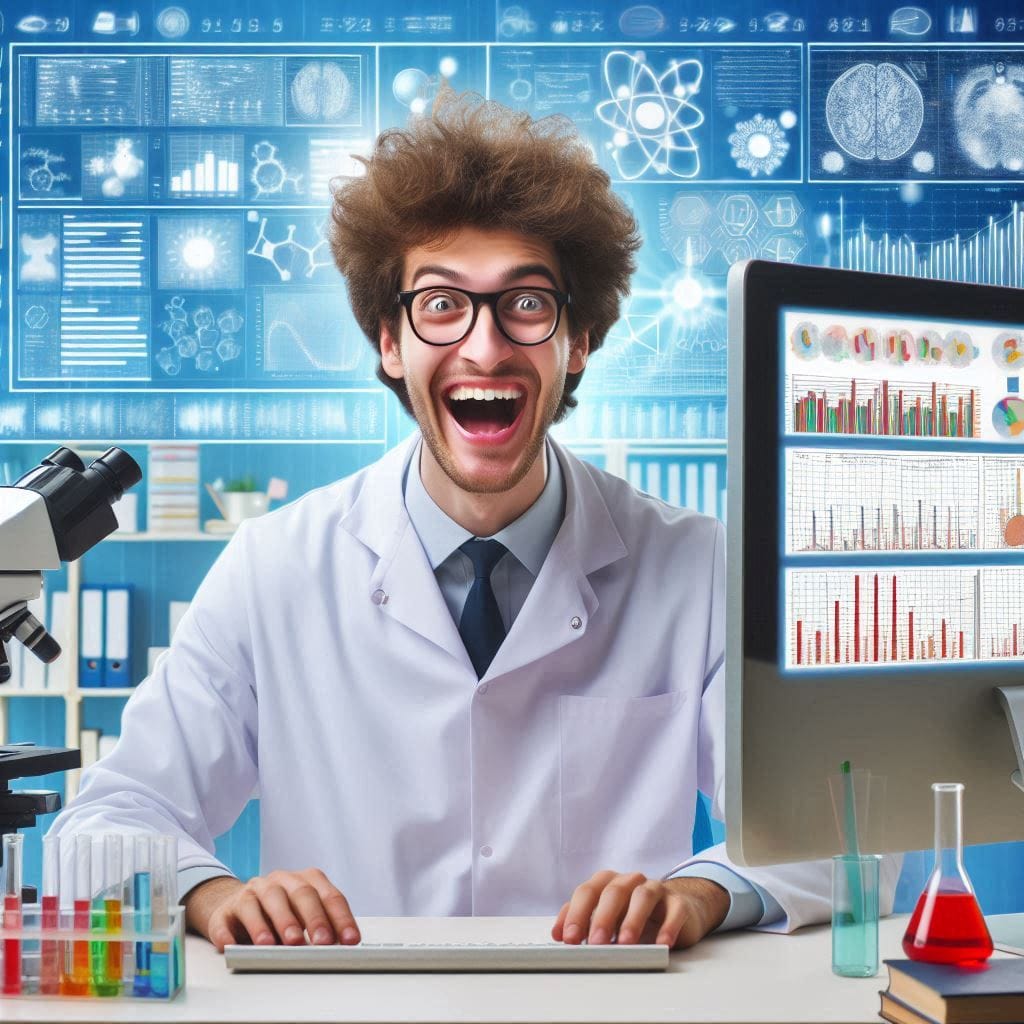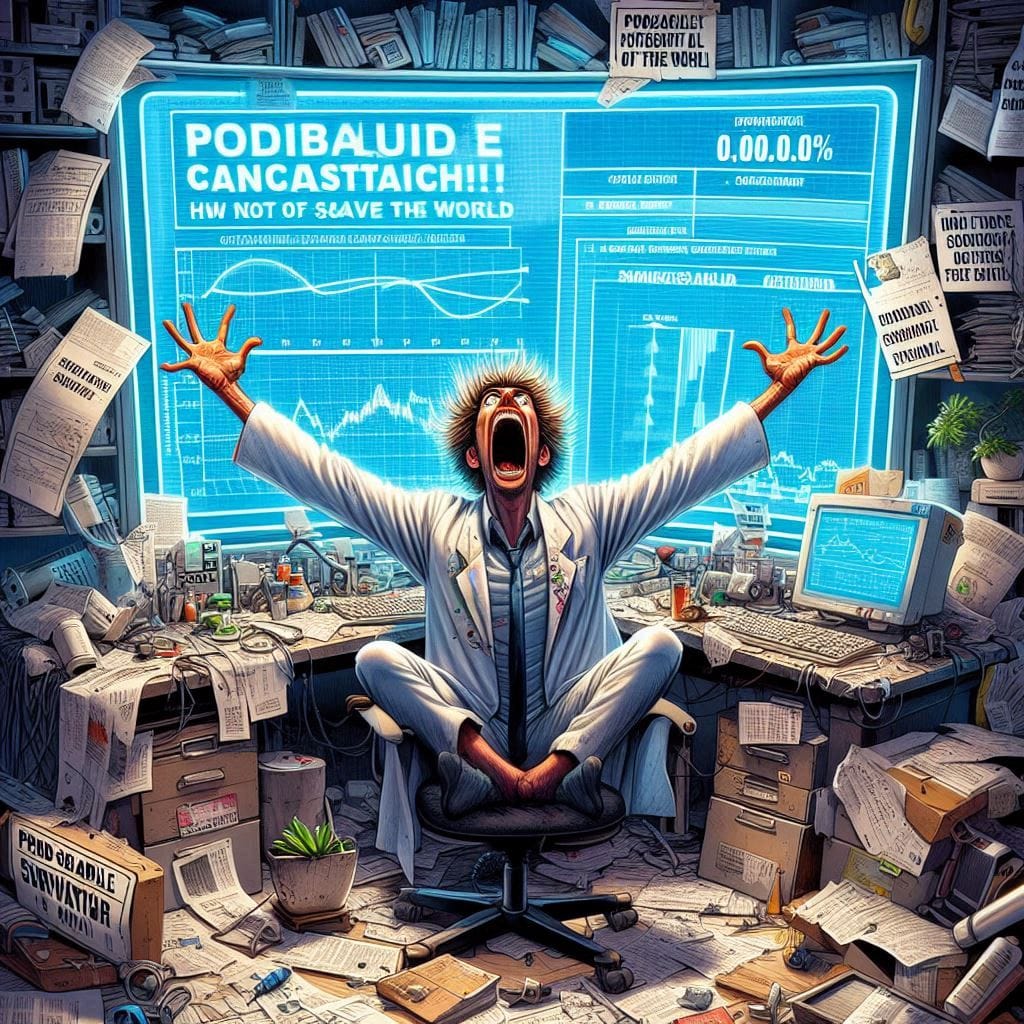The realm of scientific inquiry is undergoing a profound metamorphosis, a shift so dramatic it feels like glimpsing a scientific singularity. This transformation is driven by recent studies that have left me utterly astounded. AI has evolved from a mere analytical tool to an active and formidable participant in the scientific process. AI is generating novel research, designing intricate experiments, and even crafting compelling proposals that rival those of seasoned human experts—a truly remarkable evolution.
This blog post delves into these groundbreaking studies, exploring their implications and the profound impact they’re poised to have on the way we conduct science.
The unprecedented nature of these advancements poses a critical question that reverberates through the scientific community: Can human scientists truly compete with these increasingly sophisticated AI counterparts?
- First, A Reality Check for the Scientists
- AI Matching Human Experts in Research Proposal Writing: A Competitive Edge
- The AI Scientist: Automating the Entire Research Lifecycle
- The Autonomous Researcher: Agent Laboratory and the Future of Scientific Discovery
- AI as a Co-Scientist: Accelerating Breakthroughs Through Collaboration
- Can We Compete?
- Conclusion
First, A Reality Check for the Scientists
When the scientific world first awoke to the exhilarating potential of generative AI, epitomized by the launch of ChatGPT in late 2022, it felt like a revolution in efficiency. We marveled at its ability to streamline and accelerate previously tedious processes—literature reviews became less daunting, writing and editing less arduous, and data analysis more rapid. It was a powerful tool, a boon to researchers. We were excited!

However, fast forward to 2025, and the landscape has shifted dramatically. I, along with many others, am now confronted with a terrifying reality: the emergence of AI scientists capable of efficiently, and potentially completely, substituting human researchers. The initial excitement has given way to a chilling realization—AI isn’t just a tool to assist us; it’s a competitor, and a formidable one at that. We are no longer simply automating tasks; we are automating ourselves out of certain aspects of research. In other words, we are doomed!

This isn’t just about efficiency anymore; it’s about the very essence of scientific inquiry and the future of human involvement in it. The question is not just how we use AI but how we survive alongside it, and these developments are making me feel a bit uneasy.

Okay, let’s dial back the apocalypse talk. It’s time to dive into the fascinating research driving this AI-powered scientific shift.
AI Matching Human Experts in Research Proposal Writing: A Competitive Edge
To kick things off, let us look at a recent Stanford study that revealed AI can match, and sometimes beat, human experts at crafting compelling research proposals. This capability is pivotal, as securing funding often hinges on the quality and persuasiveness of these proposals. As reported in the study, these systems are now adept at:
- Identifying key research areas with remarkable precision.
- Developing innovative and groundbreaking research questions.
- Constructing persuasive arguments that resonate with funding bodies.
- Formulating detailed and feasible research plans.
This not only streamlines the research process but potentially democratizes access to funding by reducing the burden of proposal writing.
The AI Scientist: Automating the Entire Research Lifecycle
The next breakthrough work is from Sakana AI’s development of ‘The AI Scientist‘ which represents a significant leap forward in innovation. This comprehensive system is designed to fully automate scientific discovery, leveraging foundation models like Large Language Models (LLMs). The AI Scientist automates the entire research lifecycle, including:
- Formulates intricate and innovative hypotheses.
- Designs meticulously structured and efficient experiments.
- Analyzes vast datasets with unparalleled speed and accuracy.
- Wrote and compiled coherent and insightful research papers. You can read some of the sample research papers generated with the model here. It is truly mind-boggling!
- Incorporates an automated peer-review process to evaluate and improve generated papers.
This capability signifies a significant paradigm shift in the scientific landscape, particularly in how research is conducted and evaluated. While still under development, the AI Scientist showcases the ability to operate in an open-ended loop, continuously improving its research output by learning from previous ideas and feedback, mirroring the dynamics of the human scientific community.
The Autonomous Researcher: Agent Laboratory and the Future of Scientific Discovery
Building on the earlier examples of AI’s burgeoning research capabilities, a recent paper introduces Agent Laboratory, a framework designed to fully automate the scientific research process. This research demonstrates how AI can potentially automate the entire research lifecycle, significantly accelerating scientific discovery by:
- Conducting thorough literature reviews, frees up researchers from time-consuming background work.
- Designing and executing experiments, potentially leading to faster and more efficient research outcomes.
- Generating comprehensive research reports and code repositories, streamlining the dissemination of findings.
- Facilitating human feedback at each stage, enabling collaborative improvement of research quality.
The implementation of the Agent Laboratory, empowered by advanced Large Language Models, suggests a future where AI handles the complete research process, allowing scientists to focus on higher-level conceptualization and strategic planning.
AI as a Co-Scientist: Accelerating Breakthroughs Through Collaboration
Google Research’s pioneering work on AI as a co-scientist further illustrates this trend. Specifically, their research demonstrates how AI can serve as a valuable collaborator, accelerating scientific breakthroughs by:
- Identifying subtle patterns and correlations in complex datasets that might elude human researchers.
- Suggesting novel and potentially transformative experimental designs.
- Automating repetitive and time-consuming tasks, freeing up human researchers for more creative endeavors.
- Providing insightful interpretations and generating hypotheses that can guide future research.
This integration of AI into the scientific workflow is not a replacement for human researchers but a powerful augmentation.
Can We Compete?
The question of whether human scientists can compete with AI is, perhaps, a misdirected one. Instead, we should focus on how we can forge a synergistic collaboration with AI to enhance our research capabilities. Therefore, the short answer to the question is: Yes We Can!

I believe AI is not a replacement but a powerful tool to augment human intelligence and creativity. Here’s why I’m optimistic about AI’s role in science:
- Human Creativity Remains Essential: AI agents lack independent creativity; human input remains essential for novel research ideas.
- Automation has yet to reach the labs: Automation is not yet fully integrated into many research laboratories. AI’s effectiveness is amplified by automation, but human oversight remains crucial.
- Enhanced Focus on Innovation: The advent of AI allows us to focus on the creative, innovative, and ethical aspects of research while AI handles routine and data-intensive tasks. This accelerates the realization of our ideas. For example, my website‘s cover images, brought to life by my creative prompts, are all AI-generated.
- Skill Development is Key: Scientists should cultivate skills in AI literacy, data science, and interdisciplinary collaboration to work effectively with these emerging tools. Fellow scientists, your adaptability ensures swift mastery of these emerging tools.
- Interdisciplinary Collaboration: Combining AI with fields like data science, computer science, and domain-specific knowledge is crucial for addressing complex scientific challenges. My extensive use of Python for data analysis in electrochemistry highlights the synergy between data science and domain knowledge. Thus, the potential is limitless.
Conclusion
The rise of the AI scientist is not a harbinger of doom, but rather an opportunity for unprecedented scientific progress. By embracing collaboration, adapting to this new landscape, and addressing the ethical and practical challenges, we can accelerate scientific discovery and address some of the world’s most pressing challenges. The future of science is not about humans versus AI but about humans and AI working in harmony to unlock the mysteries of the universe and improve the human condition.
